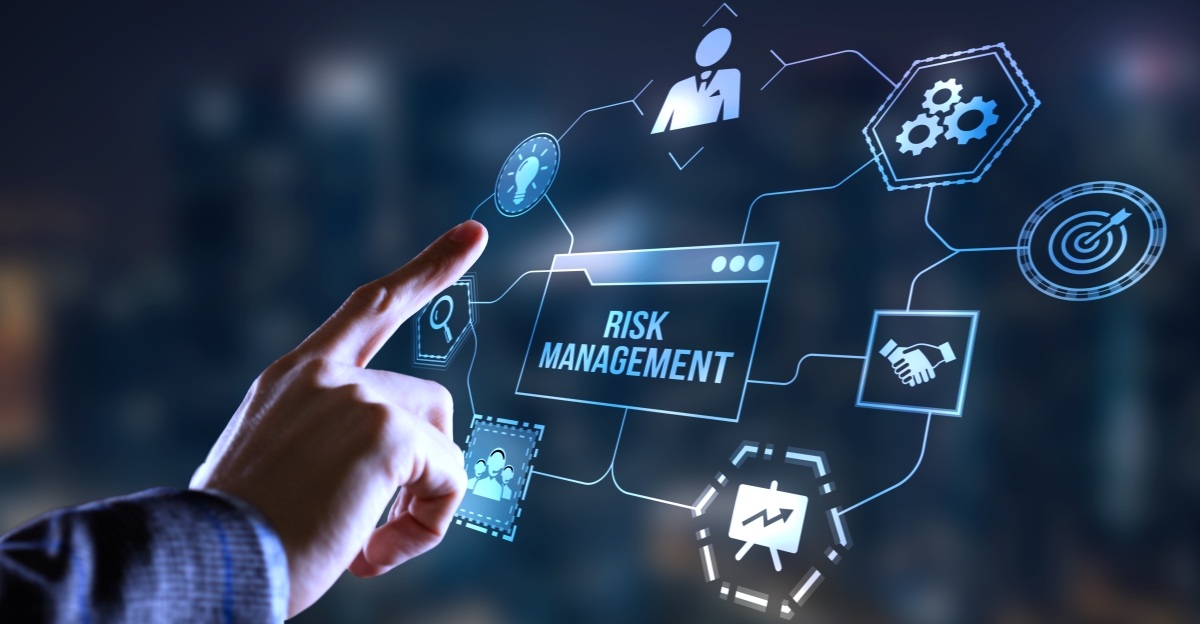Checking out the Importance of Risk Management for Effective Decision-Making Approaches
In the intricate globe of business, Risk Management arises as an important variable in the decision-making process. The ability to determine potential risks and chances, and plan as necessary, can lead to the distinction in between success and failing.
Recognizing the Idea of Risk Management
Risk Management, a vital part in decision-making, is typically misconstrued or oversimplified. Generally, it refers to the recognition, evaluation, and prioritization of risks to lessen, monitor, and control the likelihood or influence of unfavorable occasions. Nonetheless, it's not merely regarding stopping unfavorable end results, however also about acknowledging prospective opportunities. Risk Management includes self-displined and structured approaches, utilizing data and informative assessments. It requires a comprehensive understanding of the company's context, objectives, and the prospective threats that could obstruct them. From monetary uncertainties, lawful responsibilities, tactical Management mistakes, to crashes and natural catastrophes, it attends to various risks. Notably, reliable Risk Management is not stagnant; it's a continuous, progressive procedure that evolves with transforming situations.
The Role of Risk Management in Decision-Making Processes
In the realm of calculated planning and company procedures, Risk Management plays an integral role in decision-making processes. It helps in identifying prospective threats and unpredictabilities that might impact the success of service goals. By tracing these risks, companies can formulate strategies to minimize their influence, guaranteeing company connection and stability. Risk Management thus ends up being a crucial device in decision-making, assisting leaders to make educated selections based on a thorough understanding of the dangers involved. It motivates a positive method, enabling companies to prepare and expect for possible future situations. This dramatically lowers the possibility of adverse repercussions, promoting much more reliable and effective decision-making techniques. Risk Management offers as a crucial component in the decision-making procedures of any kind of company.

Exactly How Risk Management Boosts Strategic Preparation
In the context of tactical preparation, Risk Management plays a crucial duty. Launching with the identification of potential threats, it better encompasses the application of Risk reduction steps. The role of Risk Management is not fixed however dynamic, as it requires consistent tracking and adjusting of strategies.
Recognizing Potential Threats

Implementing Risk Mitigation
Having actually developed the relevance of recognizing possible risks, the next action is to check out Risk reduction. This procedure entails establishing and implementing methods to take care of determined risks successfully. It is a vital element of critical preparation as it boosts decision-making by lessening possible negative results. Risk reduction methods can vary from Risk evasion, Risk transfer, to take the chance of decrease. Each method should be customized to the particular Risk, considering its potential effect and the organization's Risk tolerance. Effective Risk reduction needs a deep understanding of the Risk landscape and the possible influence click site of each Risk. This understanding makes it possible for organizations to prioritize risks and allot sources successfully, ensuring that the most considerable dangers are resolved initially.
Monitoring and Readjusting Techniques
Though Risk mitigation is a crucial action in critical planning, constant surveillance and adjustment of these methods is equally vital. This continuous process permits companies to identify new risks and reassess existing ones, making sure the applied methods remain reliable in the ever-changing business environment. It additionally offers an opportunity to examine the success of the Risk Management measures, permitting modifications to be made where necessary, additional enhancing strategic planning. Effective tracking and adjustment require using analytics and vital performance signs (KPIs) to determine efficiency. These devices provide beneficial data-driven understandings that can educate tactical decision-making. Surveillance and changing Risk Management strategies is an important element for enhancing an organization's strength and calculated preparation.
Situation Researches: Successful Risk Management and Decision-Making
In the globe of company and finance, effective Risk Management and decision-making often offer as the pillars of thriving enterprises. These instances highlight the value of sharp Risk Management in decision-making procedures. These cases emphasize the important role of Risk Management in tactical decision-making.
Devices and Methods for Reliable Risk Management
These tools, such as Risk registers and warm maps, aid in recognizing and evaluating prospective threats. Risk reaction approaches, a vital component of Risk Management, entail i was reading this approving, avoiding, moving, or mitigating risks. With these tools and techniques, decision-makers can navigate the facility landscape of Risk Management, thus assisting in notified and efficient decision-making.
Future Trends in Risk Management and Decision-Making Methods
As we explore the huge landscape of Risk Management, it ends up being noticeable that the techniques and tools made use of today will certainly continue to progress. The principle of Risk culture, where every participant of an organization is conscious and included in Risk Management, will certainly acquire extra importance. These fads herald a more positive and comprehensive technique in the direction of Risk Management and decision-making.
Final thought

Risk Management therefore becomes an important tool in Look At This decision-making, assisting leaders to make informed selections based on a thorough understanding of the threats included. Risk reduction approaches can vary from Risk evasion, Risk transfer, to risk decrease (importance of risk management). Efficient Risk mitigation requires a deep understanding of the Risk landscape and the prospective impact of each Risk. Risk response approaches, a crucial component of Risk Management, entail accepting, avoiding, moving, or mitigating dangers. The principle of Risk culture, where every participant of an organization is mindful and included in Risk Management, will obtain much more prominence
Comments on “Exploring the Increasing Importance of Risk Management in Organizational Strategy”